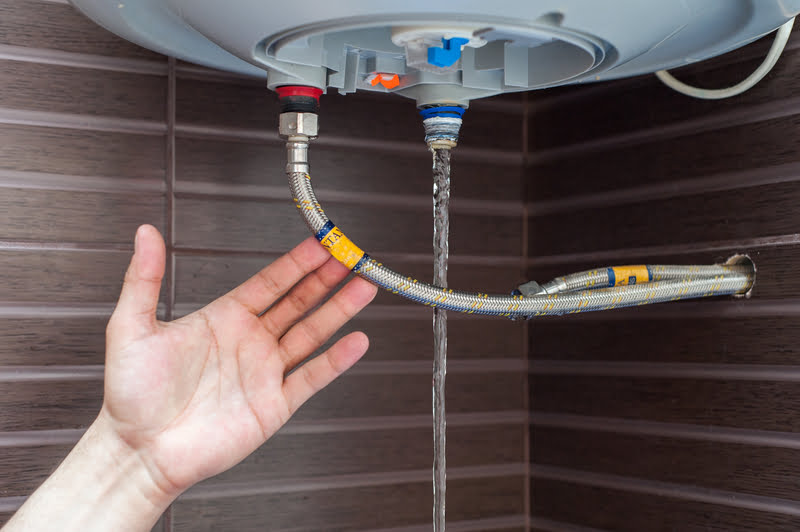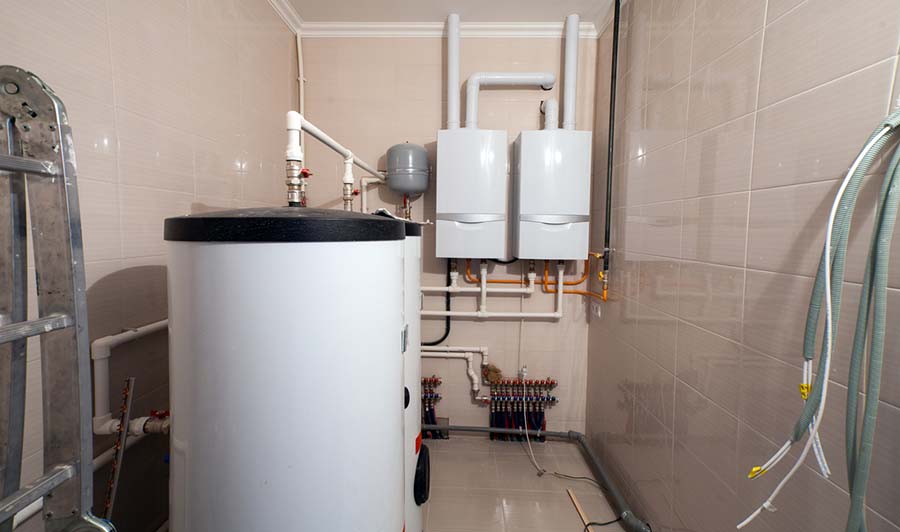Dealing with the Chief Water Heater Crisis Events
Dealing with the Chief Water Heater Crisis Events
Blog Article
The article down below involving Is Your Water Heater Leaking? is definitely informative. Read it for your own benefit and figure out what you think about it.

A water heater is one of one of the most vital basic appliances that can be discovered in a residence. With hot water heater, you don't need to experience the anxiety of home heating water manually every time there is a need to take a bath, wash, or the recipes. There is always a possibility that your water heating system would certainly act up as with a lot of mechanical devices.
It is important to keep in mind any kind of little malfunction as well as tackle it rapidly prior to things leave hand. Many times, your hot water heater starts to malfunction when there is an accumulation of sediments as a result of continual usage. As a precaution, regular flushing of your hot water heater is recommended to stop sediment build-up and stop functional failure.
Common hot water heater emergencies and just how to handle them
Leaky water heater tank.
In this scenario, you should turn off your water heater, permit it to cool down, and also meticulously look for the resource of the trouble. At times, all you need to do is to tighten up a couple of screws or pipeline links in cases of minor leaks. If this doesn't work and also the leak persists, you might need to utilize the services of a professional for an appropriate substitute.
Rising and fall water temperature.
Your hot water heater could start creating water of various temperature levels typically ice scalding or cool warm. In this circumstance, the first thing you do is to make sure that the temperature level is readied to the wanted degree. If after doing this, the water temperature level keeps transforming throughout showers or various other tasks, you could have a defective thermostat. There could be a need to change either the home heating or the thermostat system of your water heater.
Too little hot water
It might be that the water heating unit can't sustain the warm water demand for your apartment. You might update your water heating system to one with a larger capability.
Discolored or odiferous water
When this takes place, you need to recognize if the issue is from the water or the container resource. If there is no amusing scent when you run chilly water, after that you are particular that it is your water heating unit that is damaged. The stinky water can be created by corrosion or the buildup of microorganisms or sediments in the water heating unit tank.
Conclusion
Some property owners overlook little caution as well as minor faults in their water heater device. This just results in further damages as well as a possible full break down of your device. You ought to take care of your water heater faults as quickly as they come up to avoid more costs and also unnecessary emergency problems.
With water heating units, you don't need to go through the tension of heating water by hand every time there is a demand to take a bathroom, do the laundry, or the recipes. Your water heater might begin generating water of various temperature levels normally ice chilly or hot hot. It might be that the water heater can not sustain the hot water demand for your home. If there is no amusing scent when you run cold water, after that you are certain that it is your water heating system that is defective. The stinky water can be caused by corrosion or the accumulation of bacteria or debris in the water heating unit tank.
Common Water Heater Issues and What You Should Do
What Type of Water Heater Do You Have?
Before we begin it’s first important that you identify the type of water heater you have on your property. There are two main types of water heaters out there: conventional and high efficiency.
Both of these types of products typically use either gas or electricity to heat power. There are also solar water heaters that use a thermal collector on the roof or yard to heat the water.
While these models are not as common, they can cut heating costs in half. In this article, we will focus on conventional and high efficiency.
How Do My Electric and Gas Water Heater Work?
Though they look similar, electric and gas water heaters work very differently. It’s important to know their basic function because often problems can be specific to the heating source.
In the electric model, a thermostat on the side of the machine detects the temperature of the water in the tank. When the temperature needs to rise electricity flows to a heating element suspended in the water.
Gas models also use a thermostat device — typically with a mercury sensor at the tip and an additional sensor called a thermocouple. The thermocouple detects whether the pilot light is on and controls the flow of gas.
When the thermostat drops below the appropriate level gas is released which becomes ignited by the pilot light. The flame heats the bottom of the water tank which causes hot water to rise and cold water to drop.
This natural circulation continues until the water reaches the desired temperature. Then, the thermostat triggers the gas control valve to shut off the flow of gas.
What Are the Most Common Issues and How Do You Fix Them?
https://happyhiller.com/blog/common-water-heater-issues-and-what-you-should-do/

As a passionate reader about Is Your Water Heater Leaking?, I imagined sharing that excerpt was beneficial. I beg you take the time to promote this content if you enjoyed reading it. Thanks for taking the time to read it.
Get sorted, call! Report this page